All American Girl Read online
Page 3
Back in the days when Catherine and I had gone around tapping on the backs of wardrobes, hoping to get transported to a land where there were fauns and hobbits, not Lunchables and Carson Daly, meeting someone like Susan Boone would have been a thrill.
Now it was just kind of weird.
I reached out and took the hand she’d stretched toward me, and shook it. Her skin was dry and rough.
“Call me Sam,” I said, impressed with Susan Boone’s grip, which wasn’t at all elflike: the woman could definitely have handled Manet in a pinch.
“Hi, Sam,” Susan Boone said. Then she let go of my hand and turned toward Theresa. “You must be Mrs. Madison. It’s nice to meet you.”
Theresa had caught her breath. Now she stood up and shook her head, saying that she was Mrs. Madison’s housekeeper, Theresa, and that she would be back at five thirty to pick me up.
Then Theresa left and Susan Boone took me by both shoulders and steered me toward one of the paint-spattered benches, which had no back, just a tall board along one end, against which leaned a large drawing pad.
“Everyone,” Susan Boone said as she pushed me down onto the bench, “this is Sam. Sam, this is—”
Then, exactly like brownies popping out from behind giant toadstools, the rest of the art class popped their heads out from behind huge drawing pads to look at me.
“Lynn, Gertie, John, Jeffrey and David,” Susan Boone said, pointing at each person as she said his or her name.
No sooner had the heads appeared than they disappeared again, as everyone went back to scribbling on their pads. I was awarded no more than a fleeting glance of Lynn, a skinny woman in her thirties; Gertie, a plump middle-aged woman; John, a middle-aged guy with a hearing aid; Jeffrey, a young African-American man; and David, who was wearing a Save Ferris T-shirt.
Since Save Ferris is one of my favorite bands, I figured at least I’d have somebody to talk to.
But then I got a closer look at David, and I realized the chances of him even talking to me were, like, nil. I mean, he looked kind of familiar, which meant he probably went to Adams with me. And I have been one of the most hated people at Adams ever since I suggested the school donate the money we raised selling holiday wrapping paper to the school’s art department.
But Lucy and Kris Parks and people like that wanted to go to Six Flags Great Adventure theme park.
Guess who won?
And the whole wearing-black-every-day-because-I-am-mourning-for-my-generation thing hasn’t exactly helped boost my popularity much, either.
David looked like he was about Lucy’s age. He was tall—well, at least from what I could see of him, sitting on the bench—with curly dark hair and these very green eyes and big hands and feet. He was kind of cute—though not as cute as Jack, of course—which meant that, if he did go to Adams, he probably hung out with the jocks. All the cute boys at Adams hang with the jocks. Except for Jack, of course.
So when David winked at me after I sat down, and said, “Nice boots,” I was completely shocked. Thinking that he was mocking me—as most of the boys who hang out with the jocks at Adams are wont to do—I looked down and realized that he, like me, was wearing combat boots.
Only David, unlike me, wasn’t making the satirical statement with his that I was making with mine, having decorated mine with daisies (of Wite-Out and yellow highlighter) one day in seventh period.
While I was busy turning bright red because this cute boy spoke to me, Susan Boone said, “We’re doing a still life today.” She handed me a pencil, a nice soft-leaded one. Then she pointed at a pile of fruit on a small table in the middle of the room and went, “Draw what you see.”
Then she walked away.
Well, so much for her trying to stamp out my individuality and natural ability. I was relieved to see I had been wrong about that. Telling myself to forget about Cute David and his boot comment—undoubtedly he was only being nice to me on account of me being the new kid, and all—I looked at the pile of fruit on the table, nestled against a wrinkled-up piece of white silk, and began to draw.
Okay, I thought to myself. This isn’t so bad. It was actually somewhat pleasant in the Susan Boone studio. Susan was interesting, with her elf queen hair and smile. A cute boy had said he liked my boots. The classical music playing softly in the background was nice. I never listen to classical music unless it’s playing in the background of some movie I’m watching, or something. And the smell of turpentine was refreshing, like hot apple cider on a crisp autumn day.
Maybe, I thought as I drew, this wasn’t going to be so bad. Maybe it would even be fun. I mean, there are a lot of worse ways to blow four hours a week, right?
Pears. Grapes. An apple. A pomegranate. I drew without much thinking about what I was doing. I wondered what Theresa was making for dinner. I wondered why I hadn’t taken Spanish instead of German. If I’d taken Spanish, I could have gotten help on my homework from two native speakers, Theresa and Catherine. No one I knew spoke German. Why had I taken such a dumb language in the first place? I’d only done it because Lucy had, and she’d said it was easy. Easy! Ha! Maybe for Lucy. But what wasn’t easy for Lucy? I mean, Lucy has everything: titian hair, a totally righteous boyfriend, the corner bedroom with the big closet . . .
I was so busy drawing and thinking about how much better Lucy’s life was than mine that I didn’t notice Joe the crow had hopped down off the top of his cage and wandered over to check me out until he’d yanked a few strands of my hair.
Seriously. A bird stole some of my hair!
I shrieked, causing Joe to take flight, scattering black feathers everywhere.
“Joseph!” Susan Boone cried when she saw what was happening. “Put down Sam’s hair!”
Obediently, Joe opened his beak. Three or four copper-colored hairs floated to the ground.
“Pretty bird,” Joe said, tilting his head in my direction. “Pretty bird.”
“Oh, Sam,” Susan Boone said, stooping down to pick up my hair. “I’m so sorry. He’s always been very attracted to bright, shiny things.” She came over and handed me back my hair, as if there was some way I could glue it all back onto my head.
“He’s not a bad bird, really,” Gertie said, like she was concerned I had gotten the wrong impression, or something, of Susan Boone’s bird.
“Bad bird,” Joe said. “Bad bird.”
I sat there with my hair lying in my outstretched palm, thinking that Susan Boone would do well to shell out five hundred big ones to an animal behaviorist, since her pet had some major issues. Meanwhile, fluttering back to the top of his cage, Joe wouldn’t take his beady black eyes off me. Off my hair, to be more exact. You could tell he really wanted to take another swipe at it, if he could. At least, that’s how it looked to me. Do birds even feel things? I know dogs do.
But dogs are smart. Birds are kind of stupid.
But not, I realized later, as stupid as humans can be. Or at least this particular human. Around five fifteen—I could tell because the classical music station had started doing the news—Susan Boone said, “All right. Windowsill.”
And everyone but me got up from the benches and propped his or her drawing pad, with the drawing facing into the room, on the windowsill. Windows ran around all three sides of the corner room, big, ten-foot factory-style windows, above a sill wide enough to sit on. I hurried to put my pad with the others, and then we all stood back and looked at what everyone had drawn.
Mine was clearly the best. I felt pretty bad about it. I mean, here I was on my very first day of class, already drawing better than everyone else in it, even the grown-ups. I felt sorriest for John: his drawing was just a big old mess. Gertie’s was blocky and smeared. Lynn’s looked as if a kindergartner had drawn it, and Jeffrey had drawn something unrecognizable as fruit.
UFOs, maybe. But not fruit.
Only David had drawn anything remotely good. But he hadn’t drawn quickly enough to finish his. I had gotten in ALL the fruit, and I had even added a pineapple and
some bananas, to kind of balance it all out.
I hoped Susan Boone wouldn’t make too big a deal out of how much better my drawing was than everybody else’s. I didn’t want to make anybody feel bad.
“Well,” Susan Boone said. And then she stepped forward and started discussing each person’s drawing.
She was really quite diplomatic about the whole thing. I mean, my dad could probably have used her over in his offices, she was so tactful (economists are pretty good with numbers, but when it comes to human relations, they, like Rebecca, don’t do so well). Susan went on about Lynn’s dramatic use of line and Gertie’s nice sense of placement on the page. She said John had improved a lot, and everyone seemed to agree, which made me wonder how bad John had been when he started. David got an “excellent juxtaposition,” and Jeffrey a “fine detail.”
When she finally got to my drawing, I felt like slinking out of the room. I mean, my drawing was so obviously the best one. I really don’t mean to sound like a snob, but my drawings are always the best ones. Drawing is the one thing I can do well.
And I really hoped Susan Boone wasn’t going to rub it in. The rest of the class had to feel badly enough already.
But it turned out I needn’t have worried about how the rest of the class was going to feel as Susan Boone sang the praises of my drawing. Because when Susan Boone got to my drawing, she didn’t have a single nice thing to say about it. Instead, she peered at it, then stepped up to it and looked at it even more closely. Then she took a step back and went, “Well, Sam. I see that you drew what you knew.”
I thought this was a pretty weird thing to say. But then, the whole thing had been pretty weird so far. Nice—except for the hair-stealing bird, which hadn’t been so nice—but weird.
“Um,” I said. “I guess so.”
“But I didn’t tell you to draw what you know,” Susan Boone said. “I told you to draw what you see.”
I looked from my drawing to the pile of fruit on the table, then back again, confused.
“But I did,” I said. “I did draw what I see. I mean, saw.”
“Did you?” Susan Boone asked, with another of her little elf smiles. “And do you see a pineapple on that table?”
I didn’t have to glance back at the table to check. I knew there was no pineapple there. “Well,” I said. “No. But—”
“No. There is no pineapple there. And this pear isn’t there, either.” She pointed at one of the pears I had drawn.
“Wait a minute,” I said, still confused but getting defensive. “There are pears there. There are four pears there on the table.”
“Yes,” Susan Boone said. “There are four pears on the table. But none of them is this pear. This is a pear from your imagination. It is what you know to be a pear—a perfect pear—but it is not any of the pears you actually saw.”
I didn’t have the slightest idea what she was talking about, but Gertie and Lynn and John and Jeffrey and David knew, apparently. They were all nodding.
“Don’t you see, Sam?” Susan Boone picked up my drawing pad and walked over to me. She pointed at the grapes I had drawn. “You’ve drawn some beautiful grapes. But they aren’t the grapes on the table. The grapes on the table aren’t so perfectly oblong, and they aren’t all the same size, either. What you’ve drawn here is your idea of how grapes should look, not the grapes that are actually in front of us.”
I blinked down at the drawing pad. I didn’t get it. I really didn’t. I mean, I guess I sort of understood what she was saying, but I didn’t see what the big deal was. My grapes looked a lot better than anybody else’s grapes. Wasn’t that a good thing?
The worst part of it was, I could feel everybody looking at me sympathetically. My face started getting hot. That is the thing about being a redhead, of course. You go around blushing something like ninety-seven percent of the time. And there is absolutely nothing you can do to hide it.
“Draw what you see, ” Susan Boone said, not in an unkind way. “Not what you know, Sam.”
And then Theresa, panting from her climb up the stairs, came in, causing Joe to start shrieking “Hello Joe! Hello Joe!” all over again.
And it was time to go. I thought I would collapse with relief.
“I’ll see you on Thursday,” Susan Boone called cheerfully to me as I put on my coat.
I smiled back at her, but of course I was thinking, Over my dead body will you see me on Thursday.
I didn’t know then, of course, how right I was. Well, in a way.
When I told Jack about it—what had happened at the Susan Boone Art Studio, I mean—he just laughed.
Laughed! Like it was funny!
I was kind of hurt by this, but I guess it was kind of funny. In away.
“Sam,” he said, shaking his head so that the long silver ankh he wears in one ear swayed softly. “You can’t let the establishment win. You’ve got to fight against the system.”
Which is easy for Jack to say. Jack is six foot four and weighs over two hundred pounds. He was assiduously courted by our school football coach after the team’s best linebacker moved to Dubai.
But Jack wouldn’t have any part of Coach Donnelly’s scheme to dominate our school district’s sectionals. Jack doesn’t believe in organized sports, but not because, like me, he is resentful of their draining valuable funds away from the arts. No, Jack is convinced that sports, like the Lottery, only serve to lull the proletariat into a false sense of hope that he might one day rise above his Bud-swilling, pickup-truck-driving peers.
It is very easy for a guy like Jack to fight against the system.
I, on the other hand, am only five foot two and do not know what I weigh, since Mom threw out the scale after seeing a news story on the prevalence of anorexia in today’s teenage girls, but it surely isn’t more than one ten or so. Plus I have never been able to climb the rope in PE, having inherited my father’s complete lack of upper-body strength.
When I mentioned this, however, Jack started laughing even harder, which I thought was, you know, kind of rude. For a guy who is supposed to be my soulmate, and all. Even if he maybe doesn’t know it yet.
“Sam,” he said, “I’m not talking about physically fighting the system. You’ve got to be more subtle than that.”
He was sitting at the kitchen table, polishing off a box of Entenmann’s chocolate-covered doughnuts Theresa had put out for us as an after-school snack. Entenmann’s is not what we normally get as after-school snack fare. My mom only wants us to have apples and Graham Crackers and milk and stuff. But Theresa, unlike my parents, doesn’t care about Jack’s grades or the political statements he likes to make with his BB gun, so when he comes over when she’s around, it’s always like a big party. Sometimes she even bakes. Once she made fudge. I am telling you, Lucy’s getting the one guy who will inspire Theresa to make fudge proves there is seriously no justice in the world.
“Susan Boone is stifling me creatively,” I said, indignantly. “She’s trying to make me into some kind of art clone . . .”
“Of course she is.”Jack looked amused as he bit into another doughnut. “That’s what teachers do. You tried to get a little creative, added a pineapple and POW! The fist of conformity came crashing down on you.”
When Jack gets excited, he talks with his mouth open. He did that now. Bits of doughnut went flying across the table and hit the back of the magazine Lucy was reading. She lowered her copy of Cosmo, looked at the bits of doughnut stuck to the back, looked at Jack, and went, “Dude, say it, don’t spray it.”
Then she went back to reading about orgasms.
See? See what I mean about her being oblivious to Jack’s genius?
I took a bite of my own doughnut. Our kitchen table, at which we generally only eat for breakfast and snacks, is located in this kind of glass atrium that juts out from the rest of the kitchen, into the backyard. Our house is old—more than a hundred years old, like most of the houses in Cleveland Park, which are all these Victorians with a lot of stained-glas
s windows and widow’s walks, painted bright colours. For instance, our house is turquoise, yellow and white.
The glass atrium the kitchen table is in was added on to our house last year. The ceiling is glass, three walls are made of glass, and the kitchen table, actually, is made out of this huge piece of glass. Everywhere I looked, I could see my reflection, since it was getting dark outside. And I didn’t much like what I saw:
A medium-sized girl with too pale skin and freckles, dressed all in black, with a bunch of bright red curly hair sticking straight out of the top of her head.
What I saw sitting on either side of my reflection I liked even less:
A delicately featured girl with no freckles in a purple-and-white cheerleader uniform, her own bright-red hair completely under control and only curling softly where it tumbled down from a barrette.
And:
A gorgeous, big-shouldered hunk with piercing blue eyes and long brown hair in torn-up jeans and an Army Navy surplus trenchcoat, eating doughnuts as if there were no tomorrow.
And there was me, in the middle. In between. Where I always am.
I saw a documentary on birth order on the Health Network, and guess what it said:
First born (aka Lucy): Bossy. Always gets what she wants. Kid most likely to be CEO of a major corporation, dictator of a small country, supermodel, you name it.
Last born (aka Rebecca): Baby. Always gets what she wants. Kid most likely to end up discovering a cure for cancer, hosting her own talk show, stepping up to the alien mother ship when it lands and being all, “Hey, welcome to Earth,” etc.
Middle child (aka me): Lost in the shuffle. Never gets what she wants. Kid most likely to end up a teen runaway, living on leftover Big Macs scrounged from Dumpsters behind the local McDonald’s for weeks before anyone even notices she is gone.
Story of my life.
Although if you think about it, the fact that I am left-handed indicates that I was probably, at one time, a twin. According to this article I read in the dentist’s office, anyway. There’s this theory that most lefties actually started out as one in a pair of a twins. One out of every ten pregnancies starts out as twins. One of out every ten people is left-handed.

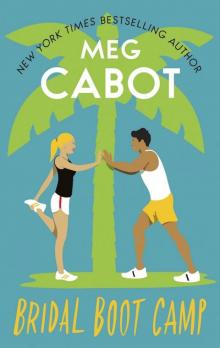 Bridal Boot Camp
Bridal Boot Camp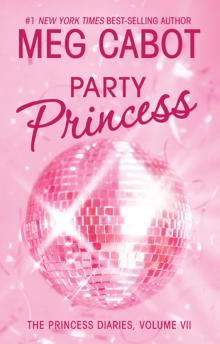 Party Princess
Party Princess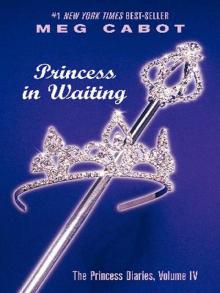 Princess in Waiting
Princess in Waiting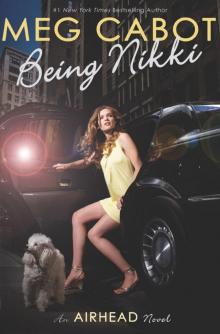 Being Nikki
Being Nikki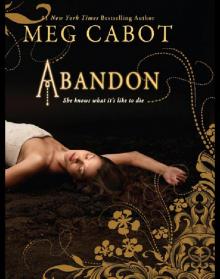 Abandon
Abandon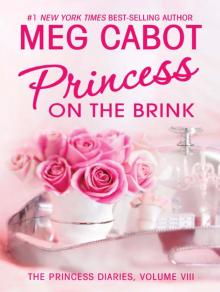 Princess on the Brink
Princess on the Brink Darkest Hour
Darkest Hour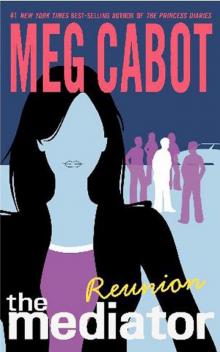 Reunion
Reunion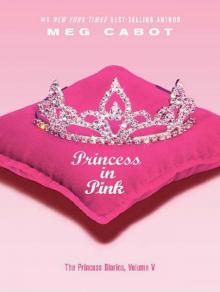 Princess in Pink
Princess in Pink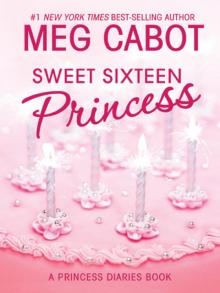 Sweet Sixteen Princess
Sweet Sixteen Princess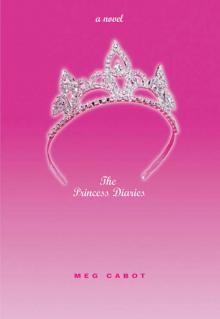 The Princess Diaries
The Princess Diaries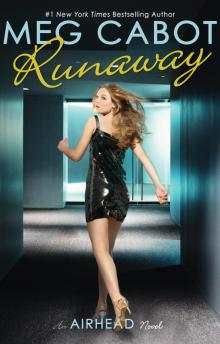 Airhead
Airhead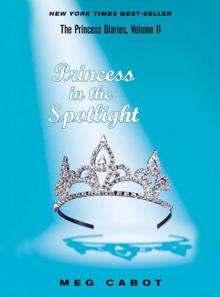 Princess in the Spotlight
Princess in the Spotlight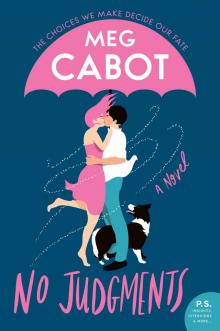 No Judgments
No Judgments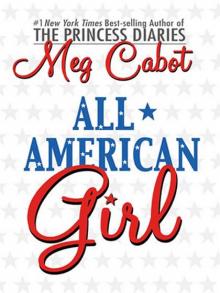 All-American Girl
All-American Girl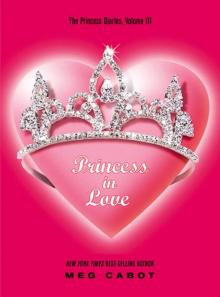 Princess in Love
Princess in Love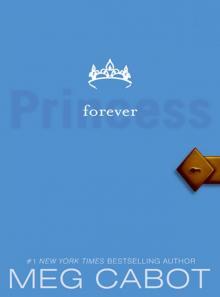 Forever Princess
Forever Princess Haunted
Haunted Shadowland
Shadowland Twilight
Twilight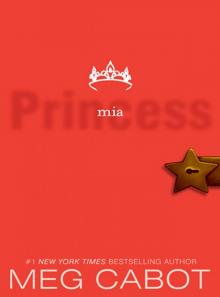 Princess Mia
Princess Mia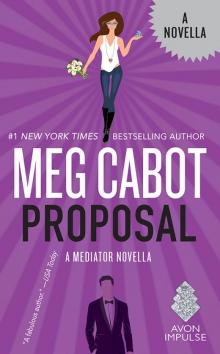 Proposal
Proposal Remembrance
Remembrance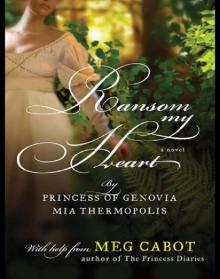 Ransom My Heart
Ransom My Heart Underworld
Underworld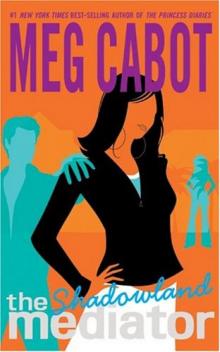 Shadowland tm-1
Shadowland tm-1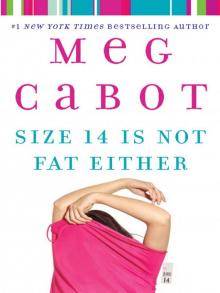 Size 14 Is Not Fat Either
Size 14 Is Not Fat Either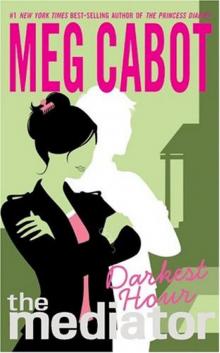 Darkest Hour tm-4
Darkest Hour tm-4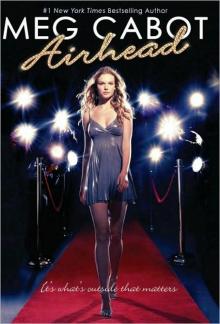 Airhead a-1
Airhead a-1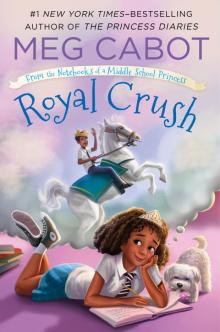 Royal Crush
Royal Crush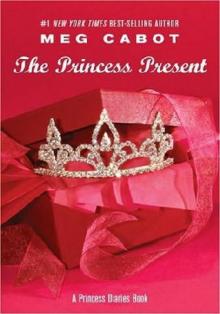 The Princess Present (princess diaries)
The Princess Present (princess diaries)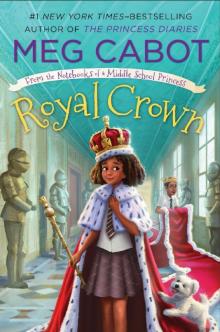 Royal Crown
Royal Crown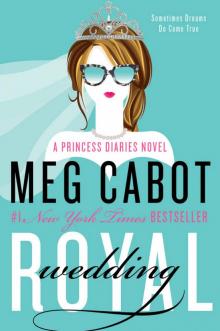 Royal Wedding: A Princess Diaries Novel (The Princess Diaries Book 11)
Royal Wedding: A Princess Diaries Novel (The Princess Diaries Book 11)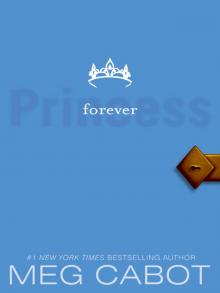 Princess Diaries, Vol. X: Forever Princess
Princess Diaries, Vol. X: Forever Princess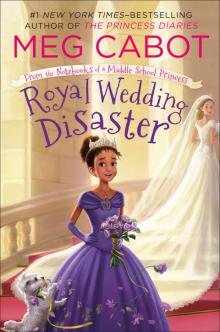 Royal Wedding Disaster
Royal Wedding Disaster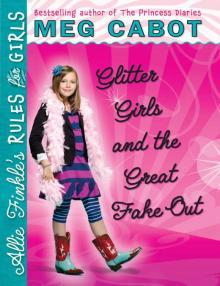 Allie Finkle's Rules for Girls: Glitter Girls and the Great Fake Out
Allie Finkle's Rules for Girls: Glitter Girls and the Great Fake Out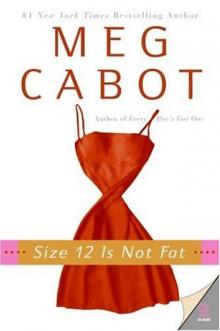 Size 12 Is Not Fat hwm-1
Size 12 Is Not Fat hwm-1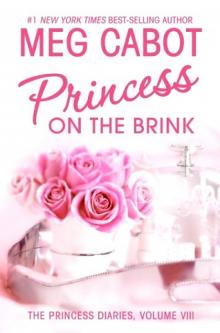 Princess on the Brink pd-8
Princess on the Brink pd-8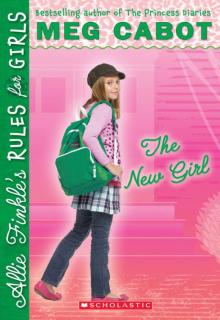 The New Girl
The New Girl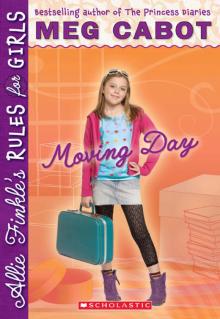 Allie Finkle's Rules for Girls: Moving Day
Allie Finkle's Rules for Girls: Moving Day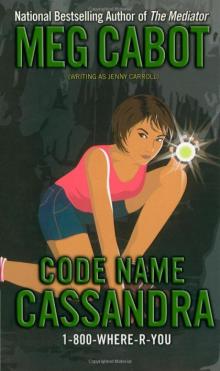 Code Name Cassandra
Code Name Cassandra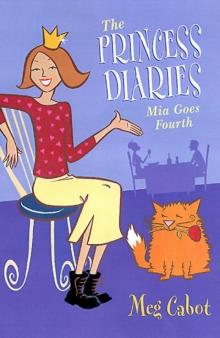 Mia Goes Fourth pd-4
Mia Goes Fourth pd-4 Sanctuary 1-4
Sanctuary 1-4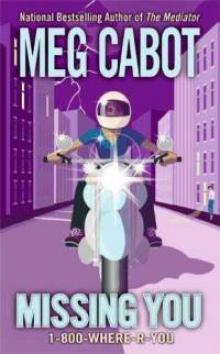 Missing You 1-5
Missing You 1-5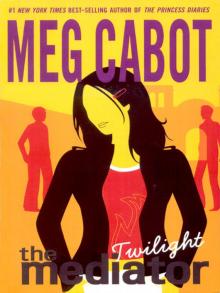 The Mediator 6: Twilight
The Mediator 6: Twilight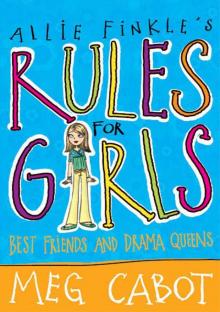 Allie Finkle's Rules for Girls: Best Friends and Drama Queens
Allie Finkle's Rules for Girls: Best Friends and Drama Queens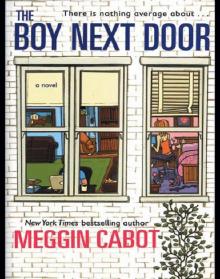 The Boy Next Door
The Boy Next Door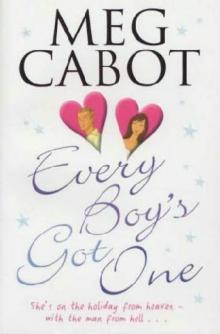 Every Boy's Got One
Every Boy's Got One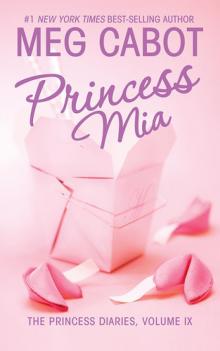 Princess Mia pd-9
Princess Mia pd-9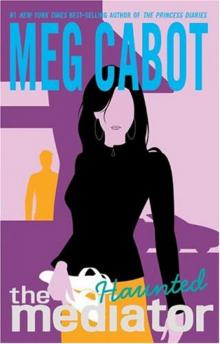 Haunted tm-5
Haunted tm-5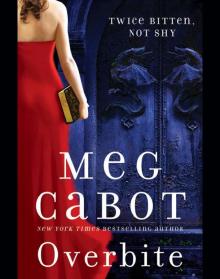 Overbite
Overbite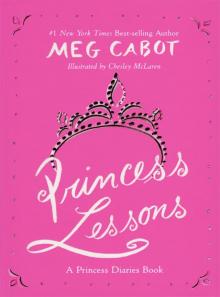 Princess Lessons
Princess Lessons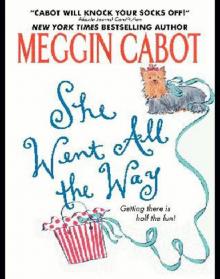 She Went All the Way
She Went All the Way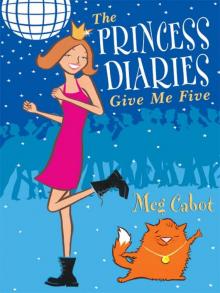 Give Me Five pd-5
Give Me Five pd-5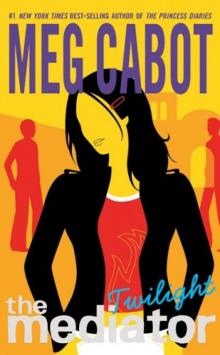 Twilight tm-6
Twilight tm-6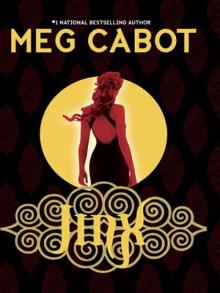 Jinx
Jinx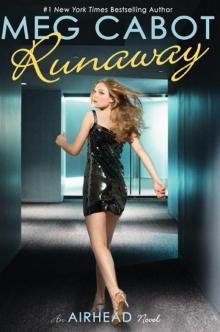 Runaway (Airhead #3)
Runaway (Airhead #3)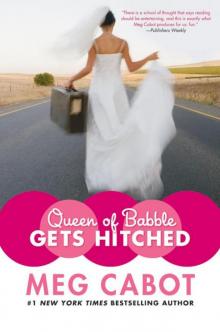 Queen of Babble Gets Hitched qob-3
Queen of Babble Gets Hitched qob-3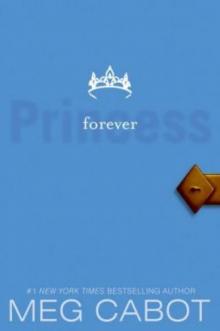 Forever Princess pd-10
Forever Princess pd-10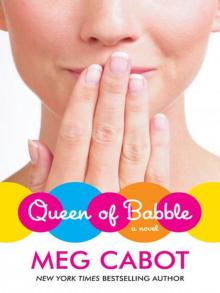 Queen of Babble
Queen of Babble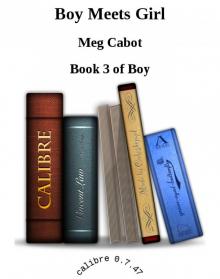 Boy Meets Girl b-3
Boy Meets Girl b-3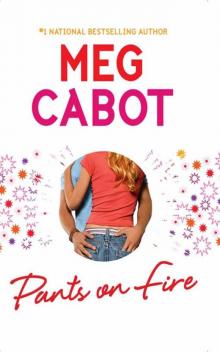 Pants on Fire
Pants on Fire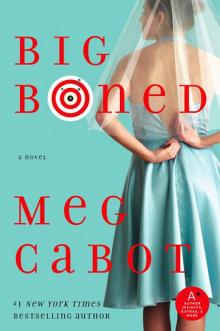 Big Boned ху-3
Big Boned ху-3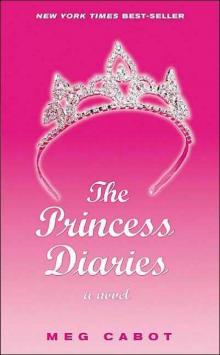 Princess' Diaries pd-1
Princess' Diaries pd-1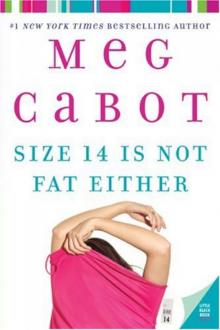 Size 14 Is Not Fat Either hwm-2
Size 14 Is Not Fat Either hwm-2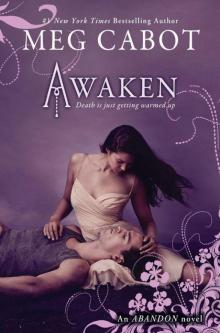 Awaken a-3
Awaken a-3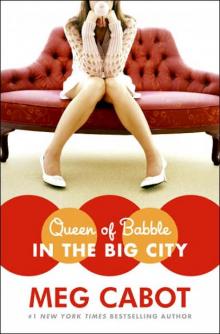 Queen Of Babble: In The Big City qob-2
Queen Of Babble: In The Big City qob-2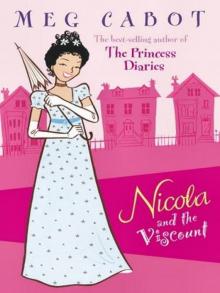 Nicola and the Viscount
Nicola and the Viscount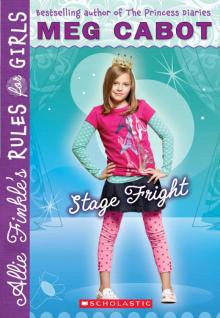 Allie Finkle's Rules for Girls: Stage Fright
Allie Finkle's Rules for Girls: Stage Fright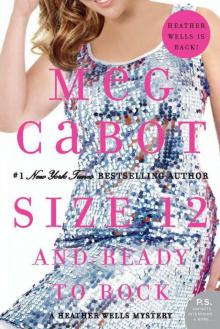 Size 12 and Ready to Rock
Size 12 and Ready to Rock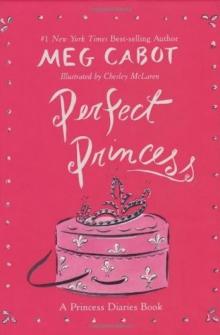 Perfect Princess
Perfect Princess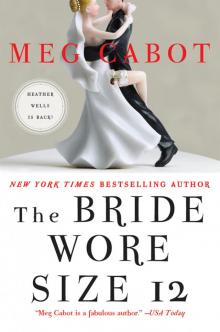 The Bride Wore Size 12
The Bride Wore Size 12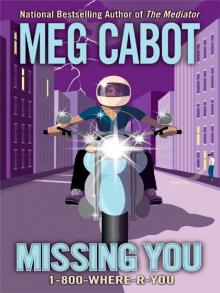 1-800-Where-R-You: Missing You
1-800-Where-R-You: Missing You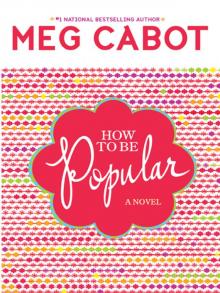 How to Be Popular
How to Be Popular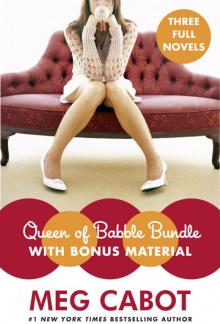 Queen of Babble Bundle with Bonus Material
Queen of Babble Bundle with Bonus Material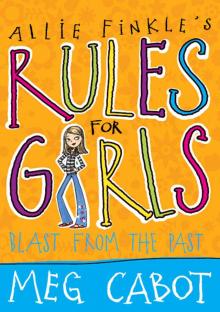 Allie Finkle's Rules for Girls: Blast from the Past
Allie Finkle's Rules for Girls: Blast from the Past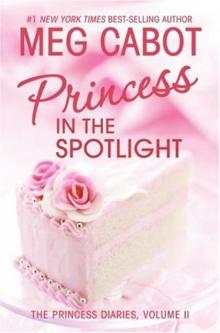 Princess in the Spotlight pd-2
Princess in the Spotlight pd-2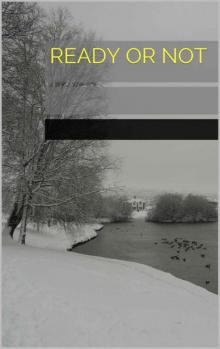 Ready or Not
Ready or Not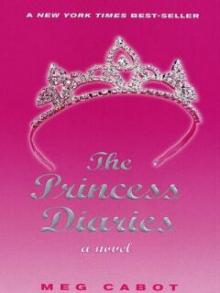 The Princess Diaries I
The Princess Diaries I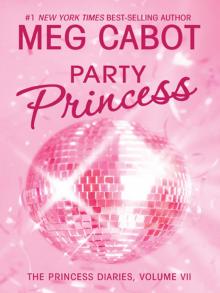 Party Princess pd-7
Party Princess pd-7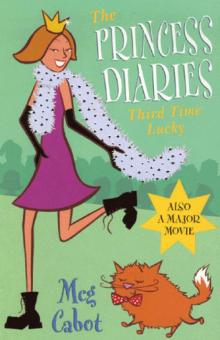 Third Time Lucky pd-3
Third Time Lucky pd-3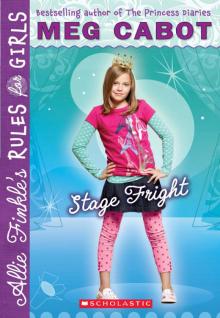 Stage Fright
Stage Fright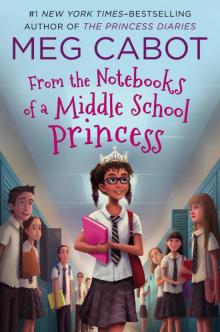 From the Notebooks of a Middle School Princess
From the Notebooks of a Middle School Princess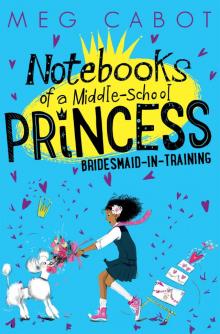 Notebooks of a Middle-School Princess Bridesmaid-in-Training
Notebooks of a Middle-School Princess Bridesmaid-in-Training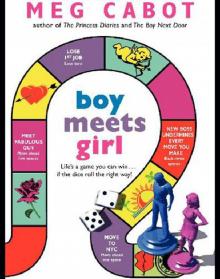 Boy Meets Girl
Boy Meets Girl Missing You
Missing You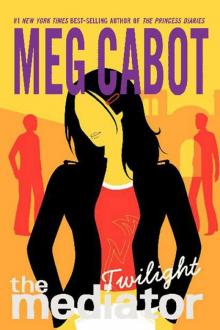 The Twilight
The Twilight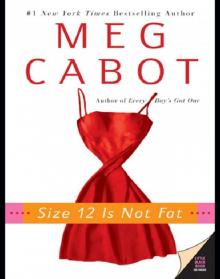 Size 12 Is Not Fat
Size 12 Is Not Fat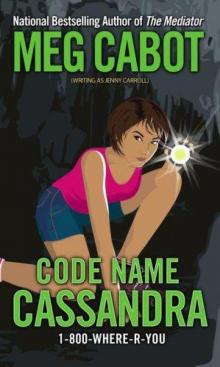 Code Name Cassandra 1-2
Code Name Cassandra 1-2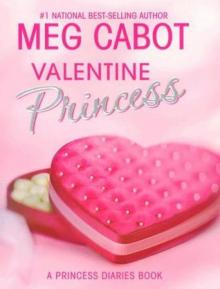 Valentine Princess
Valentine Princess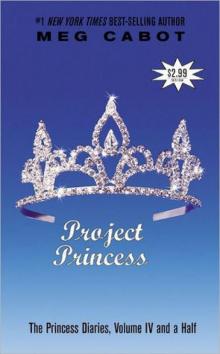 Project Princess
Project Princess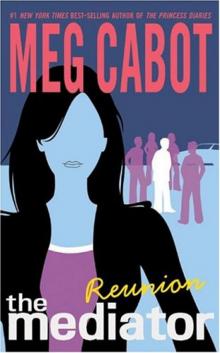 Reunion tm-3
Reunion tm-3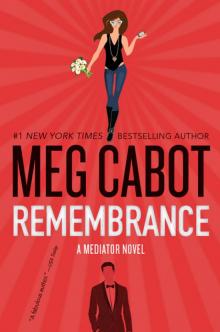 Remembrance: A Mediator Novel
Remembrance: A Mediator Novel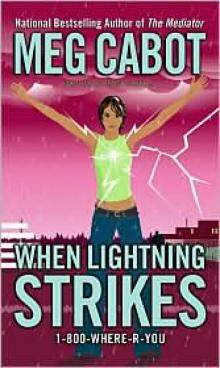 When Lightning Strikes 1-1
When Lightning Strikes 1-1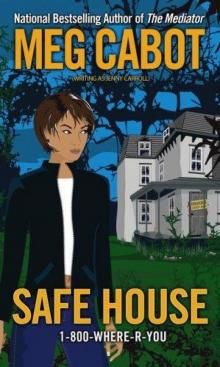 Safe House 1-3
Safe House 1-3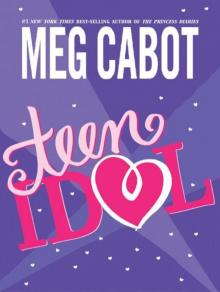 Teen Idol
Teen Idol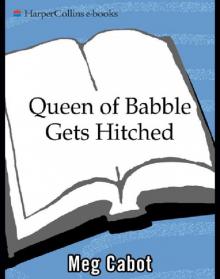 Queen of Babble Gets Hitched
Queen of Babble Gets Hitched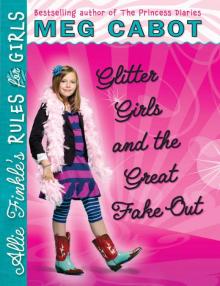 Glitter Girls and the Great Fake Out
Glitter Girls and the Great Fake Out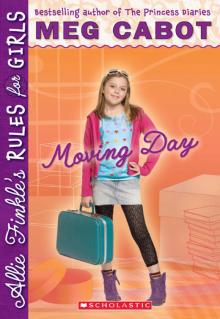 Moving Day
Moving Day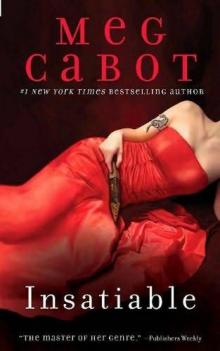 Insatiable
Insatiable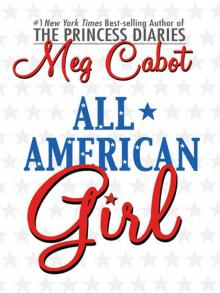 All American Girl
All American Girl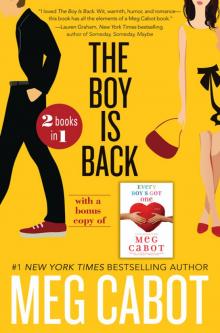 The Boy Is Back + Every Boy's Got One Bundle
The Boy Is Back + Every Boy's Got One Bundle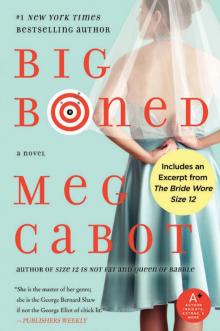 Big Boned
Big Boned Awaken
Awaken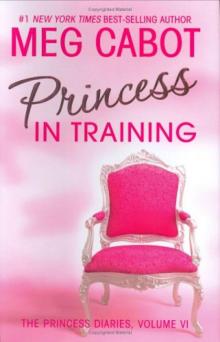 Princess in Training pd-6
Princess in Training pd-6